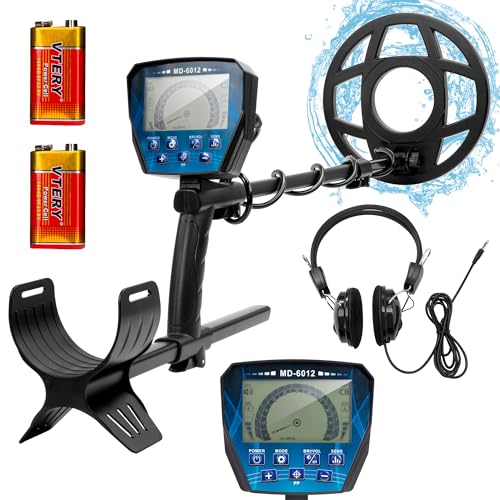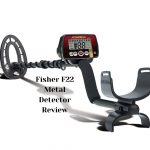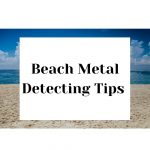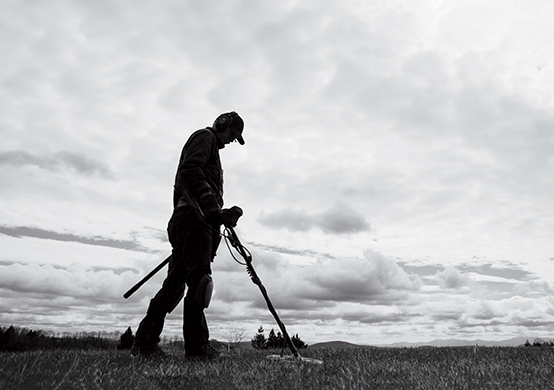
21 of the Best Metal Detecting Tips
Listed here are what we consider to be the 21 best metal detecting tips ever. These tips will not only increase your enjoyment of this incredible hobby but will also pay dividends in the long run. Increasing your success rate, as well as keeping you safe.
Tip #1. Understand that you will find a lot more trash than treasure.
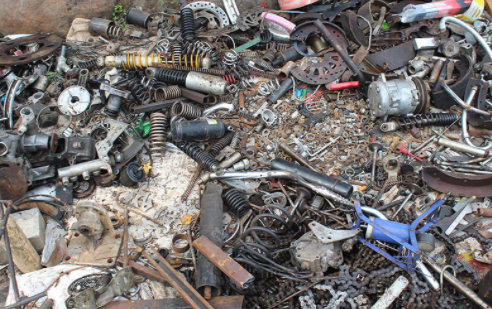
This is one of our metal detecting tips for beginners. Just be aware that you will encounter a lot more junk than buried treasure. These items will include pennies, bottle tops, ring pulls, and just general garbage. But the first and most important bit of advice is DON’T GIVE UP! Just keep on searching and that once in a lifetime find could be just around the corner.
Tip #2. When starting out make sure that you buy the right detector.
A really common mistake that newbies make is to buy a detector that is just too difficult to use. When starting out, irrespective of your budget, you need to be looking at the entry-level machines. Just make sure you do your research and get one that is powerful enough for the detecting that you want to do and isn’t one that you would find in the toy section of the store. Make sure that the features and the settings of your detector don’t overwhelm you or it could put you off, what is a very rewarding hobby. For more information to help you make the right choice check out our selection HERE
Tip #3. Make sure that you get the right accessories.
Bear in mind that when you are just starting out you don’t have to go mad and spend a fortune on accessories. But here we look at some of the essential ones to make your experience both more enjoyable and easier. Such things as gloves, tools to dig with, strong walking books (no steel toe caps though) spare batteries, and things you will need from the off. You should also have packed away in your backpack, a basic first aid kit, for any cuts and scrapes you may encounter. A charged-up cell phone, water and snacks, and some insect repellent is a must. It is also important to make sure you are wearing suitable clothing for the weather. A waterproof jacket will be a welcome addition to your bag should you get caught out by a shower.
Tip #4. Practice in your own yard with your very own testbed.
One of the most important, but often overlooked metal detecting tips is this. When you first get your detector, if you are anything like I was, you want to get out into the fields and start looking for buried treasure. But before you do that it is well worth your while taking your shiny new metal detector for a spin in your own backyard a few times to get a feel for the machine.
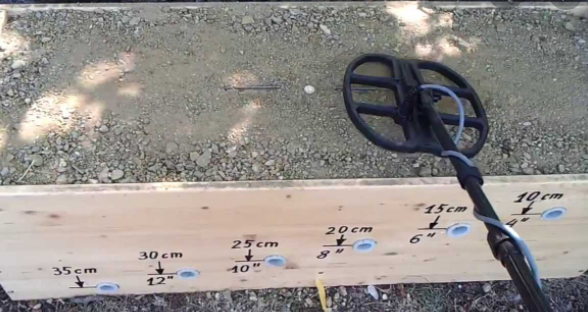
You could get a friend or partner to place things like coins, jewelry, and other metallic objects around the area you are searching. You will then get a feeling for the machine and the way it reacts to different types of metal. It is also valuable to bury these objects at varying depths so you get used to the depth settings and how the signals change the further the item is from the surface. Set up your very own testbed before you venture out. You’ll be glad you did.
Tip #5 Really get to know and understand your detector and its settings.

Every metal detector on the market is different so it’s important to get comfortable with how yours operates. Not only will this make searching more enjoyable but it also increases your chances of finding something worthwhile. You should start by reading the manual and as you work through trying out the different settings in real-time. Another metal detecting tip is to head over to YouTube. Whether the video is from the manufacturer themselves or someone who owns the same model, it can be a valuable resource and speed up your learning of how to operate the detector. Another tip related to this one is for the first few outings; take the instruction manual with you. It is always handy to be able to double-check the settings even if you are in the middle of a huge field.
Tip #6 Avoid trespassing at all costs.
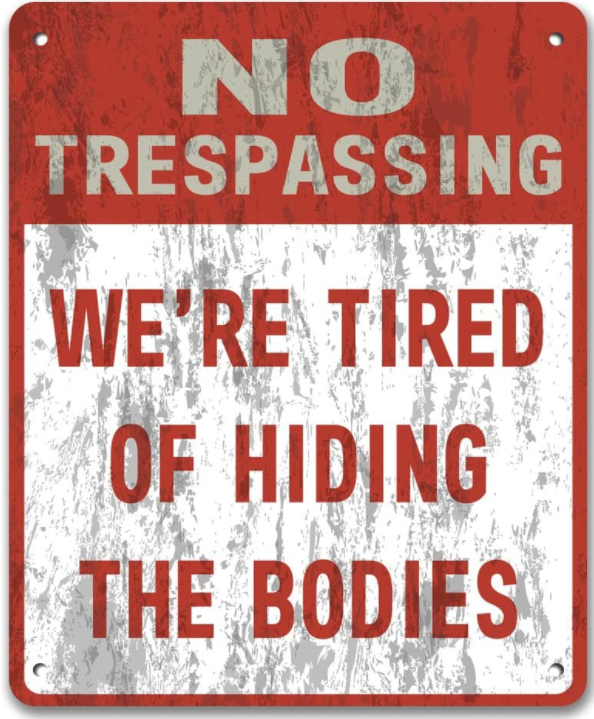
One of the most important things to remember about this hobby is that before you even set foot on someone’s land YOU MUST HAVE PERMISSION. This might sound an obvious one but you would be surprised how many detectorists tend to overlook this vital piece of the puzzle. Many, especially people new to the hobby, think they can pull their detector out of their car and just go wandering off detecting. This is probably one of the most frustrating areas of detecting, but cannot be overlooked. It is all said and done a part of the hobby that we all must deal with and you always get a great sense of satisfaction when permission is granted for a piece of land. Getting caught trespassing can have major consequences and the knock-on effects could affect other detectorists in the future. Check out how to get permission HERE. Also once permission has been granted, don’t ruin it by leaving the area in a mess. Make sure you fill in all holes and try to leave it in a better condition than when you arrived.
Tip #7. Dig it all and keep digging.
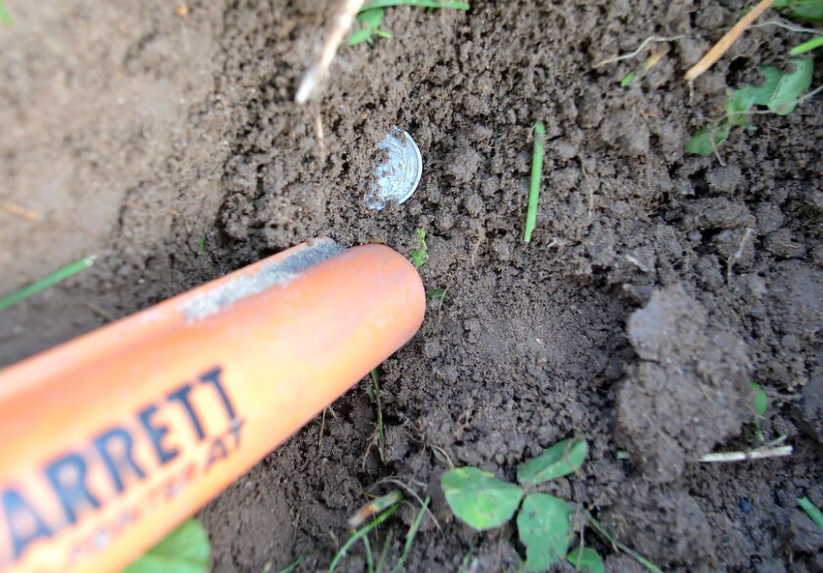
In the beginning, you may struggle to identify all the targets correctly. So you need to understand that the shovel is your best friend, so make sure you get yourself a real good one. You will find that many of the trash items that you will encounter have a very similar ID to good targets. Also, you need to bear in mind that some trash items may be masking a good target, so you should, especially in the early days, dig it all. And while you are digging should you find say a coin, there’s more likely to be more so keep digging. another of our metal detecting tips involves silver coins. Silver coins being older tend to sink lower into the ground as time goes on. When you find a good find there is likely to be another one fairly close by. It is not uncommon to find pairs, sets, and groups in the same area. This is where a pinpointer is invaluable to find if the coin in your hand is the only one or if there are others in the same spot. Check out some great pinpointers HERE.
Tip #8. Avoid hunting at busy times.
Wooded areas, parks, and many public locations are some of the best and most profitable places to detect, but it is advisable to try and avoid them at their busiest times. Apart from people getting in your way you just might find yourself answering more questions about what you are doing, how the machine works and the favorite ‘have you found any buried treasure then?’ then you will be metal detecting. Instead, try to detect in these places when there are fewer people around. Early mornings and late in the evenings are good times to consider or even better just after a rain shower. Not only is the wet ground more suited to conductivity, but it also makes it much easier to dig.
Tip #9 Take two sacks with you!
This is a great tip and was told to me many years ago, but why two sacks? Well, the first sack you treat as your metal detecting finds bag. Anything you find which may be of interest to you is placed in this bag, so you can go through the items later on, for cleaning and identification. Now, remember what we said about leaving the area better than when you arrived? This involves removing the trash you dig up and rest assured there will be lots of it. This is also good should you or other detectorist search the area at a later date there will be less trash to find. That’s one less false signal to worry about. Then just dispose of the trash bag later in an appropriate place and make sure you don’t get the two sacks mixed up.
Tip #10 Slow and steady wins the race.
Many detectorists, especially people new to the hobby are sometimes all too eager to dig up that priceless artifact and tend to move too fast when they are detecting. In fact, I remember a piece of advice that was given to me many years ago was this. To be successful at this hobby low and slow is the key.
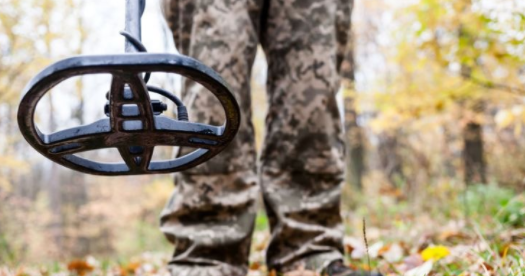
A fast sweep might mean you are missing signals on weaker targets or missing out if that signal is too brief. This could mean you missing a deeper object or a small target that could turn out to be quite valuable. The technology inside your detector will struggle to understand the signals should you sweep too fast or keep lifting the coil at the end of the sweep. This will cause erratic sounds and confuse you in the process. Just take it nice and slow with a steady sweep and it will pay dividends. Being in too much of a rush and it will cost you in the long run.
Tip #11 Sweep the surface before you dig.
Once you hear a signal from your slow and steady sweep, it is a good idea to take a second and clear away the top surface before you begin digging. Once you have swept the top layer of dirt away use your detector to check again. If this time you get no signal, it was probably a tiny piece of trash or mineralization in the top layer of dirt and you can then move on.
Tip #12 Search in high traffic areas.
It’s a fact of life that people lose things all the time. So wherever lots of people go you will find items. It’s also worth remembering that these items that you find don’t have to have been lost recently. This is where a little bit of research could become invaluable. If you can find that once-bustling site that is now abandoned by the crowds you could have a very profitable outing. High traffic areas to consider are places like beaches, playgrounds, and parks. Picnic areas, showgrounds, as well as ghost towns, and sites of historical interest can also be very productive indeed.
Tip #13 Keep a metal detecting log of all your finds.
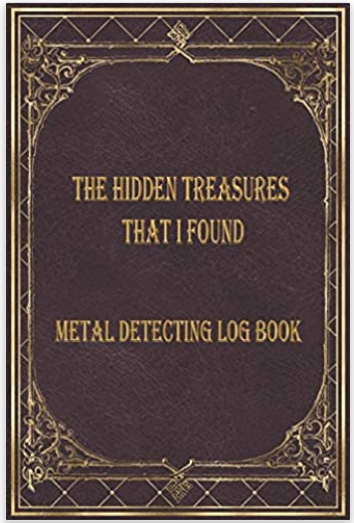
It is a good idea and good practice to keep a log or record after every detecting hunt. This doesn’t have to be a Pulitzer Prize entry but should include the location of the search, date and time, which sections of the area were covered, and what challenges you encountered if any.
You will find that when you keep a record it helps you keep track of each site you search on, allowing you to analyze possible patterns, so you can return at a later date and be more prepared with the correct intent and equipment.
It also allows you to strike that site from your list if it doesn’t yield the type of targets you were after. This can be done in a notebook or some people use a spreadsheet to keep a constant record of their progress. A log like this also allows you to easily rotate your detecting locations.
Tip #14 Do your research on the site you want to search.
Doing your preparation and research prior to visiting the site can be invaluable. And it also dramatically improves your chances of detecting something of value. The internet is amazing for this type of research. It can provide historical data and background information, which will stand you in good stead when you apply for that all-important permission. It all gives you a solid foundation on how to prepare your approach to the landowner and when they realize how prepared you are, could be the key to getting their permission.
This will also set you up nicely when you do search the site, with clues on where to search thus improving your success rate.
Tip #15 Make a checklist for each site you plan to search.
It is good practice to make a checklist of all your equipment and accessories that you will need for your trip. This list can and should be adjusted depending on where you will be detecting as different places may require different gear. This way it is much easier to stay organized and you may need to add certain items to the list after a search where you found you were missing some accessory or piece of equipment.
Tip #16 Talk to other metal detector enthusiasts.
One of the most valuable metal detecting tips is to get as much advice as you can. When you are out in the fields you will invariably come across other detectorists. When you get chatting with them you can find out all sorts of useful information. Whether you are talking about equipment or potential search sites as well as the best ways to get permission, experienced detectorists are a fountain of knowledge for the less experienced hunter. The key here is to ask a question and then listen. The natural urge is to tell them all about your recent finds, but if you can resist that temptation you can learn so much from them.
Tip #17 Join a metal detecting club.
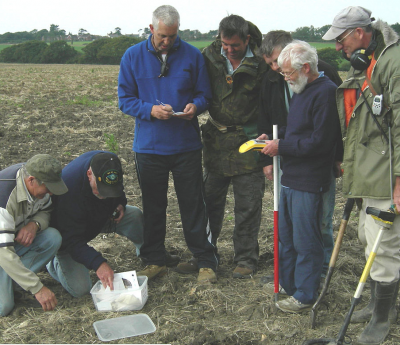
Once again the internet is your friend here. If you do a quick Google search and you should find a local club that can be a great resource for you in your detecting journey. This is a great way to keep up with local detecting news, get some great advice, and generally meet like-minded people.
Many clubs have regular meet-ups and some have field trips where you get to observe years of experience on show. This sort of shadowing can take your own detecting to another level. All in all loads of fun, handy contacts, great advice, and a way to keep up to date with local detecting news.
Tip #18 Research legal requirements.
Depending on your location there will be certain requirements you will need to know before you go hunting and the onus is on you to know them. The laws vary from country to country, from state to state, and from city to city. As you can see these laws and regulations can be almost impossible to keep track of. The best option is to contact the local officials and find out that way. There are many resources available on the internet to find out which detecting laws apply to which state or which city. Be a responsible detectorist rather than an ignorant one. And remember if challenged always be polite and apologetic. This alone can get you a long way.
Tip #19 Stay safe while metal detecting.
There are many ways to protect yourself while out metal detecting. If possible always detect with another person. Be aware that the equipment you are holding can in some cases be very valuable indeed. A charged-up cell phone is one of the most important metal detecting tips, really important. And also if you do detect solo, make sure you have informed someone of your location.
A first aid kit is also a must, just in case you suffer an injury or you come across an angry hornet or a bad-tempered bee. Always wear a good pair of gloves as you may come across spikes or even needles as you dig. Common sense things like, drinking plenty of water in hot conditions as well as keeping warm in colder weather is also important. Be aware of your environment and always be on the lookout for the local wildlife and act accordingly. And finally, check the weather before you go and dress appropriately.
Tip #20 Get yourself some knee pads.
Here’s another of our great metal detecting tips that you will be grateful for in the future, as you’ll discover you spend a lot of time on your knees so you want to make sure you are comfortable.
Detecting isn’t much fun if you are in pain so say goodbye to sore knees and invest in a sturdy pair of knee pads, you’ll be glad you did. Even if you find yourself digging in soft soil, a sharp stone or even a broken branch could put a premature end to your searching.
An ideal purchase is a pair of work trousers with knee pad pockets built into them. These have many other attributes such as loops and extra pockets which can make detecting a lot easier.
Tip #21 Take care when cleaning your finds.
This is one of the most crucial metal detecting tips I was given when I first started. Many of your finds can seriously reduce in value if you either damage or scratch a coin or artifact while digging or cleaning. Coins and jewelry that have been buried underground or in saltwater for a long period of time are going to be badly tarnished and corroded, so you need to learn how to effectively and safely clean them. Each type of metal or artifact will require a different method of cleaning so it is important to do this correctly.
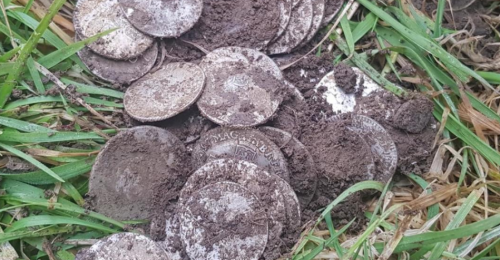
In fact, I would go as far as to say that any finds that include artifacts, whether they are coins, jewelry, or other historically important objects, should NOT be cleaned. Professional services should be sought to carry out this delicate operation. Here being a member of a Metal Detecting Club can point you in the right direction. Other everyday non-historical rings, bracelets, coins, and other items can be cleaned as long as you find the correct way to do this.
This is another, but important, part of this fascinating hobby and it will pay dividends in the long run if you learn to clean your detecting finds in the correct way.
Conclusion
So there you have, what we consider, to be the best metal detecting tips to help you get even more from your metal detecting.
We hope you find some of these useful and as always the best tip which is probably more important than all the above is to be patience and DON’T GIVE UP!!!









